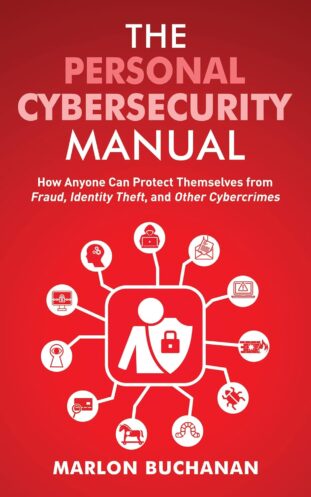Welcome to the world of top senior scams—where fraudsters get more creative than a toddler with a crayon! Whether it’s posing as long-lost grandkids in need of bail money or offering tech support for computers you don’t even own, these scammers have an impressive, albeit infuriating, imagination.
So, buckle up and let’s dive into the wild, wacky, and often ridiculous ways these tricksters try to part you from your hard-earned cash with these top trending scams!

Why These Current Senior Scams?
Scams targeting seniors are increasingly common, especially with the rise of technology. Seniors are particularly susceptible to internet crimes, with phishing being the most prevalent.
According to a Medicare FAQ poll, 90% of seniors have encountered suspicious emails, and despite 83% being able to identify these threats, 44% have still clicked on risky links.
In 2023, the FBI reported that Americans aged 60 and older filed 101,068 internet crime complaints, resulting in $3.4 billion in financial losses. The FBI’s Internet Complaint Center also recorded a record 88,418 complaints with losses surpassing $12.5 billion, marking a significant increase from the previous year (Aura) (Senior Planet from AARP).
In Canada, an Ipsos Poll report in 2024 found that 43 per cent of Canadians have been the victim of a fraud or scam in their lifetime, and the Canadian Anti-Fraud Centre reported 92,078 fraud incidents in 2022. With more interactions taking place online, it is getting more difficult to know when an email or phone call from a “so called organization is real or not!
Top Senior Scams
Here are some of the top scams currently targeting seniors:
- Government Impersonation Scams: Scammers pose as officials from the CRA, IRS, FBI, or Social Security, threatening arrest or legal action unless payment or personal information is provided.
- Elder Financial Abuse: This involves trusted individuals, like family members or caregivers, exploiting seniors by gaining access to their finances, often through coercion or deceit.
- Tech Support Scams: Fraudsters pretend to be tech support from reputable companies, claiming that a senior’s computer has been compromised. They then charge for unnecessary services or install malware to steal financial information.
- Extortion Scams: Typically involves an e-mail where a fraudster claims they’ve hacked into the victim’s personal computer and accessed compromising photos or videos. They threaten to release them online unless a payment is made.
- What to do next: If this happens to you, report it to your local
- Investment Scams: These include Ponzi schemes and fake investment opportunities promising high returns with little risk. Scammers often target seniors who are looking for safe ways to manage their retirement funds.
- Sweepstakes and Lottery Scams: Seniors are told they’ve won a large prize but must pay fees or taxes upfront. The “prize” never arrives, and the money is lost.
- Romance Scams: Scammers create fake online profiles on dating sites or social media to form relationships with seniors. They build trust over time and then request money for emergencies, travel, or other fabricated needs.
- Health Insurance Scams: Fraudsters target seniors with fake Medicare schemes, offering bogus services or pretending to be Medicare representatives to steal personal information and commit identity theft.
- Grandparent Scams: In this scam, the fraudster pretends to be a grandchild in distress, claiming they need money urgently for bail, hospital bills, or other emergencies. They rely on the senior’s love and concern to get them to send money quickly without verification.
- Charity Scams: Scammers exploit the generosity of seniors by posing as representatives of fake charities, especially after natural disasters or during the holiday season. They solicit donations that go straight into the scammer’s pocket.
- Funeral and Cemetery Scams: Some fraudsters target grieving seniors by overcharging for funeral services or selling fake burial insurance policies. In some cases, they may even insist on prepayment for services that will never be rendered.
Here are a few more senior scams that target seniors:
13. Reverse Mortgage Scams: Fraudsters convince seniors to take out a reverse mortgage and then steal the funds or charge exorbitant fees for services that are either unnecessary or non-existent.
14. Prescription Drug Scams: Scammers offer fake or substandard prescription drugs online at a discount. Seniors, trying to save money on medications, might unknowingly purchase these counterfeit drugs, which can be ineffective or harmful.
15. Online shopping / Airline scams dupe seniors into purchasing fraudulent products or providing financial details on fake websites.
16. Home Repair Scams: Fraudsters pose as contractors offering home repairs, often after natural disasters. They demand payment upfront and either do subpar work or disappear without completing the job.
17. Social Security Scams: Scammers call or email seniors claiming there’s an issue with their Social Security benefits. They’ll ask for personal information or demand payment to “fix” the issue, leading to identity theft or financial loss.
18. Telemarketing Scams: Seniors receive phone calls from scammers pretending to offer goods, services, or charity requests. These scammers often use high-pressure tactics to get seniors to hand over credit card information or send money.
These scams are increasingly sophisticated, making it essential for seniors and their caregivers to stay vigilant and informed (Aura) (Senior Planet from AARP).
All this information is NOT MEANT TO SCARE YOU, but to create awareness! We have included two mysteries by Stephanie Kimball to help drive out any anxiety you may be experiencing and replace with thrilling plots! Check them out
Top 5 Reported Scams
The top 5 reported scams by the FBI 2023 Elder Fraud Report are:
- Personal data breaches through phishing email and tech support
- Confidence and romance scams
- Investment scams – costliest
- Non – delivery scams, and
- Non – payment scams
An emerging trend is the use of AI technology for voice cloning scams in the Grandparent Emergency scams which are becoming more frequent
8 Signs to Look Out For
Recognizing the warning signs of a scam can help you avoid falling victim. Here are some key indicators:
- Unsolicited Contact: You receive an unexpected phone call, email, or message from someone claiming to be from a government agency, financial institution, or a company with which you have no prior relationship.
- Pressure to Act Quickly: Scammers often create a sense of urgency, insisting that you must act immediately to avoid a penalty, claim a prize, or resolve a supposed issue.
- Requests for Personal Information: You’re asked to provide sensitive details like Social Security numbers, bank account information, or passwords. Legitimate organizations rarely request such information via phone or email.
- Unusual Payment Methods: Scammers often ask for payment in unconventional ways, such as gift cards, wire transfers, or cryptocurrency, which are hard to trace and recover.
- Too Good to Be True Offers: If an offer sounds too good to be true—like winning a lottery you never entered or receiving a high-return investment with no risk—it probably is.
- Errors in Communication: Watch for poor grammar, spelling mistakes, or awkward language in emails or messages. These can be red flags of a scam.
- Caller ID Spoofing: Scammers may manipulate caller ID to make it appear as though the call is coming from a trusted source. Always verify the authenticity of such calls by contacting the organization directly.
- Pressure to Keep It Secret: If someone asks you not to tell anyone about the situation or the offer, it’s a major red flag. Scammers want to isolate their victims from seeking advice or second opinions.
Good Tips on Actions to Take
Here are some good tips on what actions to take if you suspect you’re being scammed:
4 Initial Steps
- Pause and Reflect: Don’t rush into any decisions. Scammers often use pressure tactics to make you act quickly. Take a moment to think things through.
- Verify the Source: If you receive a suspicious call, email, or message, contact the organization directly using a verified phone number or website. Don’t use contact information provided in the message.
- Consult a Trusted Person: Talk to a family member, friend, or financial advisor before making any decisions or providing personal information.
- Don’t Share Personal Information: Never give out personal, financial, or login information over the phone, email, or text unless you are absolutely sure of the recipient’s identity.
Report the Scam
If you suspect you have encountered a scam,
In Canada: report to
- Canadian Anti-Fraud Centre (CAFC): This is the main agency for reporting fraud, including online, telephone, and other types of scams. You can report the scam online through their official website or by calling 1-888-495-8501.
- Your Local Police: If you’ve been a victim of a scam and have lost money or personal information, report it to your local police department. They can help you with the next steps and investigate the crime.
- Financial Institutions: If the scam involves your bank account, credit card, or any financial transactions, immediately contact your bank or credit card company. They can help secure your accounts and may be able to reverse unauthorized transactions.
- Consumer Protection Agencies: Depending on the type of scam, you may also report it to provincial or territorial consumer protection agencies. They offer advice and support for various consumer-related fraud issues.
- Better Business Bureau (BBB): For scams involving businesses, you can report the issue to the BBB to alert others and potentially help recover lost funds.
In USA: Report it to local law enforcement, the Federal Trade Commission (FTC), or the FBI’s Internet Crime Complaint Center (IC3). Reporting helps authorities track and combat scams.
Useful Reference Internet Scams List
Lee, J (2022). List: 24 Online Scams To Watch Out For – A collection of emails, texts, and social media posts that advertise illegitimate giveaways. https://www.snopes.com/collections/online-scam-collection/
Conclusion – Top Senior Scams
In the age of technology, it seems seniors aren’t just the wisest among us—they’re also the most targeted! While the internet offers many conveniences, it also serves as a playground for scammers.
So, whether you’re dodging phishing emails or deciphering “too-good-to-be-true” offers, remember: staying scam-free is the ultimate victory dance in the digital age! Keep your guard up, and if all else fails, there’s always the “delete” button.
Related Articles
- The Best Retirement Advice – How to Retire SMART
- Retired But Not Tired – How to Remain Active
- Revealing 5 Common Financial Scams Targeting Seniors
FAQ
Which are the current senior scams?
Current senior scams include fake tech support calls, lottery frauds, and phishing emails pretending to be from banks or government agencies. Stay informed, verify contacts, and report suspicious activities to protect yourself from these scams.
What are the top senior scams?
The top senior scams involves fraudulent schemes targeting older adults, often through phishing calls, fake investment opportunities, or identity theft. Protect yourself by verifying sources, avoiding unsolicited offers, and reporting suspicious activity to authorities.
References
Mackay J. (2023) 12 Alarming Senior Citizen Scams: What You Need to Know https://www.aura.com/learn/senior-citizen-scams
Brooks, R.A (2024) Scammers Ramp up Senior Targeting with a New Tool – Senior Planet from AARP





